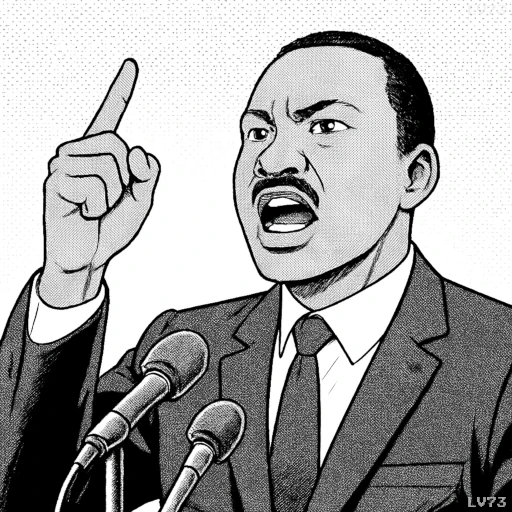“Capitalism does not permit an even flow of economic resources. With this system, a small privileged few are rich beyond conscience, and almost all others are doomed to be poor at some level. That’s the way the system works. And since we know that the system will not change the rules, we are going to have to change the system.”

- January 15, 1929 – April 4, 1968
- African American
- Pastor and civil rights leader
table of contents
Quote
“Capitalism does not permit an even flow of economic resources. With this system, a small privileged few are rich beyond conscience, and almost all others are doomed to be poor at some level. That’s the way the system works. And since we know that the system will not change the rules, we are going to have to change the system.”
Explanation
In this quote, King critiques capitalism as a system that inherently creates and perpetuates economic inequality. He argues that capitalism concentrates wealth among a small, privileged elite, leaving the majority with limited resources and opportunities. King suggests that this economic imbalance is not an accident but rather a defining feature of the system, one that will not self-correct. Therefore, to achieve a more just and equitable society, he advocates for systemic change rather than waiting for capitalism to address its own flaws.
King’s views on economic justice evolved as he observed the impact of poverty on marginalized communities. He recognized that racial equality alone was insufficient without addressing the economic disparities that often intersected with issues of race. King came to see the fight for civil rights as inseparable from the fight for economic justice, advocating for fair wages, equitable access to resources, and a reimagining of economic structures. He believed that poverty and economic inequality were moral issues that had to be addressed to create a fairer society.
Today, King’s message resonates in discussions around economic inequality, wealth concentration, and the need for structural reform. His words challenge us to consider the limitations and ethical implications of economic systems that prioritize profit over people. King’s quote encourages us to advocate for policies and changes that promote a fairer distribution of wealth, resources, and opportunities. By questioning systems that perpetuate inequality and exploring alternatives that foster economic justice, we honor King’s vision of a society where all people can thrive without the burden of poverty or economic exploitation.
Would you like to share your impressions or related stories about this quote in the comments section?




